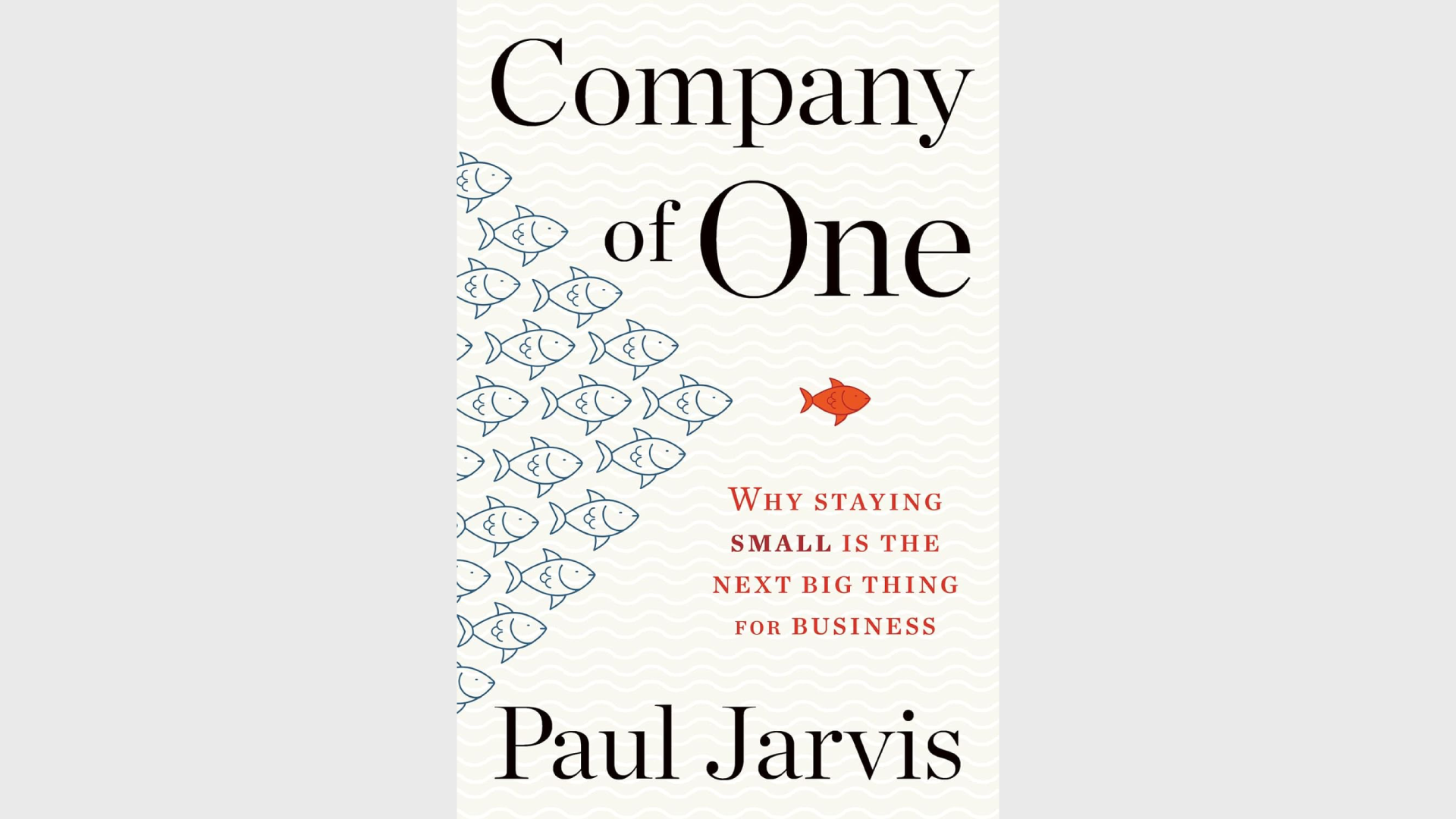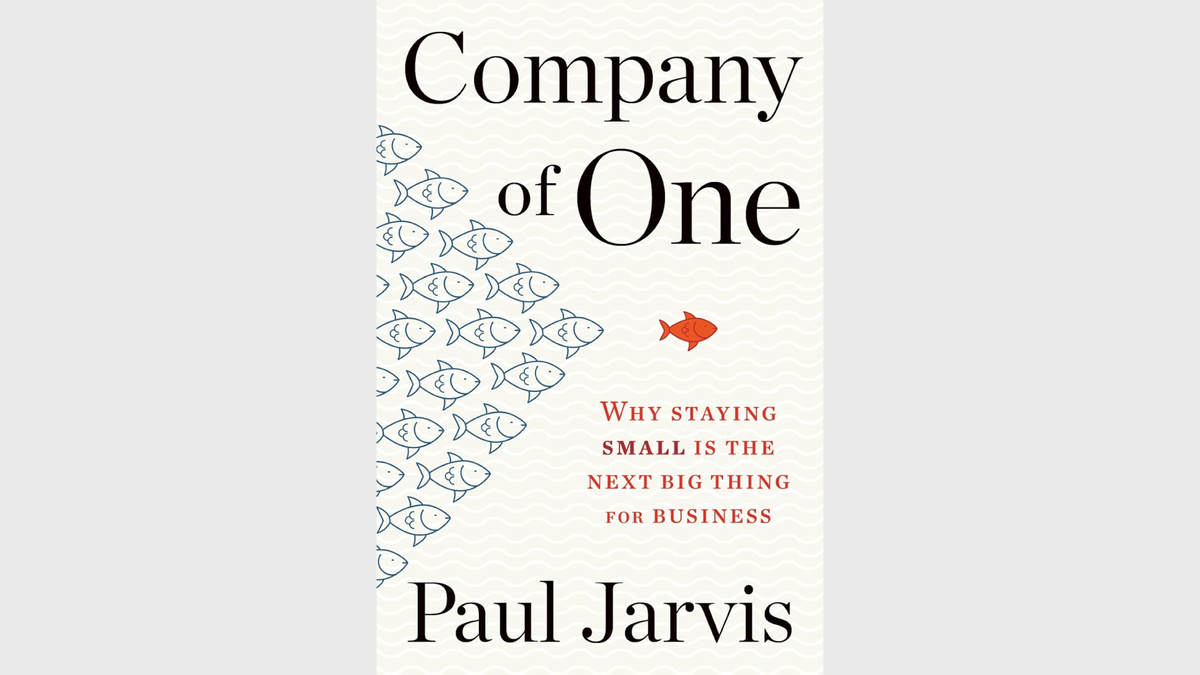The Company of One Approach to Entrepreneurship
Discover the transformative potential of the "company of one" approach to entrepreneurship. From solo operation and efficiency focus to leveraging technology and niche market specialization, explore key principles backed by research and insightful quotes from renowned figures.

A notable shift towards simplicity and self-sufficiency has emerged in contemporary entrepreneurship, epitomized by the "company of one" philosophy. This minimalist mindset challenges conventional wisdom, suggesting that business success doesn't necessarily hinge on expansion and scale. Let's explore this paradigm further, integrating insights from research and notable quotes.
1. Solo Operation: the Intricate Balance
In entrepreneurship, the solo operator is a testament to the power of individual vision and determination. Charles-Guillaume Étienne wisely observed, "If you want something done right, do it yourself." This section delves into the essence of solo operations, exploring the agility and decision-making prowess that characterize the journey of the solitary entrepreneur.
Through research by Cagliano, Caniato, and Spina (2003), we navigate the nuanced landscape of solo entrepreneurship, uncovering the inherent advantages and challenges faced by those who brave the path alone. Additionally, insights from Gimeno et al. (1997) shed light on the unique blend of job satisfaction and autonomy experienced by solo operators, highlighting the intricate balance between independence and responsibility.
2. Focus on Efficiency
Efficiency stands as the cornerstone of success in the realm of the company. Peter Drucker's poignant words, "Efficiency is doing things right; effectiveness is doing the right things," serve as a guiding beacon for entrepreneurs navigating the complex terrain of business optimization. This section delves into the art and science of efficiency, drawing from the wisdom of Womack and Jones (2003) to unravel the intricate web of waste elimination and value maximization.
Furthermore, insights from Nylén and Holmström's research (2015) illuminate the transformative role of technology in enhancing efficiency for small businesses, underscoring the strategic importance of technological innovation in pursuing operational excellence.
3. Leveraging Technology
Technology is a formidable ally for the solo entrepreneur in the digital age, providing a gateway to unprecedented opportunities and growth. Steve Jobs' timeless insight, "Technology is nothing. What's important is that you have faith in people, that they're basically good and smart, and if you give them tools, they'll do wonderful things with them," resonates deeply in this context.
This section delves into the transformative power of technology, drawing inspiration from Brynjolfsson and McAfee's (2014) exploration of digital tools and their democratizing influence on small businesses. Additionally, insights from Wu et al. (2019) shed light on the symbiotic relationship between technology adoption and business performance, unveiling the myriad ways in which technological innovation fuels entrepreneurial success.

4. Specialization and Niche Markets
The niche market is a fertile ground for entrepreneurial innovation and growth within the vast commerce landscape. Pat Flynn's insightful maxim, "The riches are in the niches," serves as a poignant reminder of the strategic importance of specialization in pursuing business success. This section ventures into the realm of niche markets, drawing from Porter's (1980) seminal work on competitive advantage to unravel the intricate dynamics of niche specialization.
Furthermore, insights from Golder and Tellis' (1993) exploration of market pioneers and niche dominance shed light on the strategic imperatives underlying the pursuit of niche market leadership, illuminating the path to sustainable differentiation and profitability.
5. Flexibility and Autonomy
In entrepreneurship, flexibility and autonomy emerge as indispensable allies, empowering solo operators to chart their course amidst uncertainty. Stephen R. Covey's profound insight, "I am not a product of my circumstances. I am a product of my decisions," is a poignant reminder of the transformative power of personal agency in pursuing entrepreneurial success. This section delves into flexibility and autonomy, drawing from Gartner's (1985) exploration of entrepreneurial motivation to unravel the intricate interplay between independence and innovation.
Additionally, insights from Bradley et al.'s (2012) investigation into the relationship between flexibility and business performance shed light on the profound impact of flexible work arrangements on job satisfaction and psychological well-being.
6. Risk Management
Risk management emerges as a critical linchpin for success in the tumultuous world of entrepreneurship, guiding solo operators through the treacherous waters of uncertainty. Mark Zuckerberg's insightful admonition, "The biggest risk is not taking any risk," serves as a sobering reminder of the perils of complacency in the face of uncertainty. This section delves into risk management, drawing from Venkataraman's (1997) exploration of entrepreneurial judgment to unravel the intricate nuances of risk assessment and mitigation.
Additionally, insights from Barney's (1991) investigation into risk-taking behavior in small businesses shed light on the strategic imperatives underlying the pursuit of entrepreneurial success, illuminating the path to sustainable growth and resilience.
A Comprehensive Guide to Building a 'Company of One'
In the ever-evolving entrepreneurship landscape, the 'company of one' concept has gained traction. It offers a minimalist yet impactful approach to business ownership. Embracing the ethos of autonomy, efficiency, and specialization, a 'company of one' represents a paradigm shift from traditional notions of growth and scale. This comprehensive guide explores the step-by-step process of creating your own 'company of one,' drawing insights from industry research and expert wisdom.
1. Define Your Niche and Value Proposition:
- Begin by identifying a niche market or specialized area where you can offer unique value. Conduct thorough market research to understand your target audience's needs and pain points.
- Clearly define your value proposition, articulating how your offerings address your target market's specific challenges or desires.
- Take inspiration from Pat Flynn's maxim, "The riches are in the niches," and focus on carving out a distinct space for yourself in the market.
2. Develop Your Skills and Expertise:
- Invest in developing the skills and expertise necessary to excel in your chosen niche. Stay updated on industry trends, best practices, and emerging technologies relevant to your field.
- Take a cue from Steve Jobs' insight, "Technology is nothing. What's important is that you have faith in people, that they're basically good and smart, and if you give them tools, they'll do wonderful things with them," and leverage technology to augment your capabilities and efficiency.
3. Set Up Your Infrastructure:
- Establish the foundational elements of your business, including your brand identity, website, and digital presence. Invest in user-friendly platforms and tools that support your operations.
- Create efficient workflows and processes to streamline your operations and maximize productivity. Focus on simplicity and scalability to accommodate future growth.
4. Acquire Clients and Build Relationships:
- Develop a targeted marketing strategy to reach your ideal clients and communicate your value proposition effectively. Leverage digital marketing channels such as social media, content marketing, and email campaigns to attract and engage potential clients.
- Prioritize building strong client relationships based on trust, transparency, and reliability. Deliver exceptional value and service to foster loyalty and generate positive word-of-mouth referrals.
5. Deliver Exceptional Value and Service:
- Strive for excellence in every interaction with your clients, going above and beyond to exceed expectations and deliver exceptional value. Continuously seek feedback to understand their evolving needs and preferences.
- Stay true to your values and vision, and let them guide your decisions and actions. Embrace flexibility and adaptability as essential traits in navigating the dynamic landscape of entrepreneurship.
6. Manage Your Finances and Mitigate Risks:
- Implement sound financial management practices to ensure the long-term sustainability of your business. Monitor your income and expenses closely, budget effectively, and maintain a healthy cash flow.
- Mitigate risks by diversifying your client base, investing in insurance coverage, and establishing contingency plans for unforeseen circumstances. Take inspiration from Mark Zuckerberg's admonition, "The biggest risk is not taking any risk," and embrace calculated risks as opportunities for growth and innovation.
By following these steps and embracing the principles of a 'company of one,' you can create a successful and sustainable business that reflects your unique skills, expertise, and values. Remember to stay agile, adaptable, and focused on delivering value to your clients, and you'll be well on your way to building a thriving enterprise on your terms.
Research Links
- Solo Operation:Cagliano, R., Caniato, F., & Spina, G. (2003). E-business strategy: how companies are shaping their supply chain through the internet. International Journal of Production Economics, 86(2), 157-175. LinkGimeno, J., Folta, T. B., Cooper, A. C., & Woo, C. Y. (1997). Survival of the fittest? Entrepreneurial human capital and the persistence of underperforming firms. Administrative Science Quarterly, 42(4), 750-783. Link
- Focus on Efficiency:Womack, J. P., & Jones, D. T. (2003). Lean thinking: banish waste and create wealth in your corporation. Harvard Business Review Press. LinkNylén, D., & Holmström, J. (2015). Digital innovation strategy: A framework for diagnosing and improving digital product and service innovation. Journal of Small Business and Enterprise Development, 22(4), 633-651. Link
- Leveraging Technology:Brynjolfsson, E., & McAfee, A. (2014). The second machine Age: work, progress, and Prosperity in a time of brilliant technologies. MIT Press. LinkWu, J., Li, Y., & Hong, J. (2019). The impact of technology adoption on the performance of entrepreneurial firms: The case of China. Journal of Small Business Management, 57(S1), 311-334. Link
- Specialization and Niche Markets:Porter, M. E. (1980). Competitive strategy: Techniques for analyzing industries and competitors. Free Press. LinkGolder, P. N., & Tellis, G. J. (1993). Pioneer advantage: Marketing logic or marketing legend? Journal of Marketing Research, 30(2), 158-170. Link
- Flexibility and Autonomy:Gartner, W. B. (1985). A conceptual framework for describing the phenomenon of new venture creation. Academy of Management Review, 10(4), 696-706. LinkBradley, D., Cartwright, S., & Hayton, J. (2012). The effect of entrepreneurial flexibility on the relationship between firm size and firm growth in the UK. International Small Business Journal, 30(2), 117-142. Link
- Risk Management:Venkataraman, S. (1997). The distinctive domain of entrepreneurship research: An editor's perspective. Journal of Business Venturing, 12(5), 411-419. LinkBarney, J. B. (1991). Firm resources and sustained competitive advantage. Journal of Management, 17(1), 99-120. Link
Suggest Reading
If you like the idea and the book A Company of One, then here are three interesting books to explore.
"Remote: Office Not Required" by Jason Fried and David Heinemeier Hansson. Another book by the Basecamp founders, "Remote," explores the benefits and challenges of remote work and offers practical advice for managing remote teams, maintaining productivity, and creating a thriving remote work culture.
"Start Small, Stay Small: A Developer's Guide to Launching a Startup" by Rob Walling. This book is tailored for developers and entrepreneurs who want to build a business without taking on significant risks or scaling too quickly. It provides practical advice on starting and maintaining a small, profitable company focusing on bootstrapping and staying lean.
"Anything You Want: 40 Lessons for a New Kind of Entrepreneur" by Derek Sivers. Derek Sivers, the founder of CD Baby, shares his unconventional wisdom on entrepreneurship. The book is a collection of short, insightful lessons on building a business that aligns with your values and goals, emphasizing simplicity, customer focus, and personal fulfillment.


